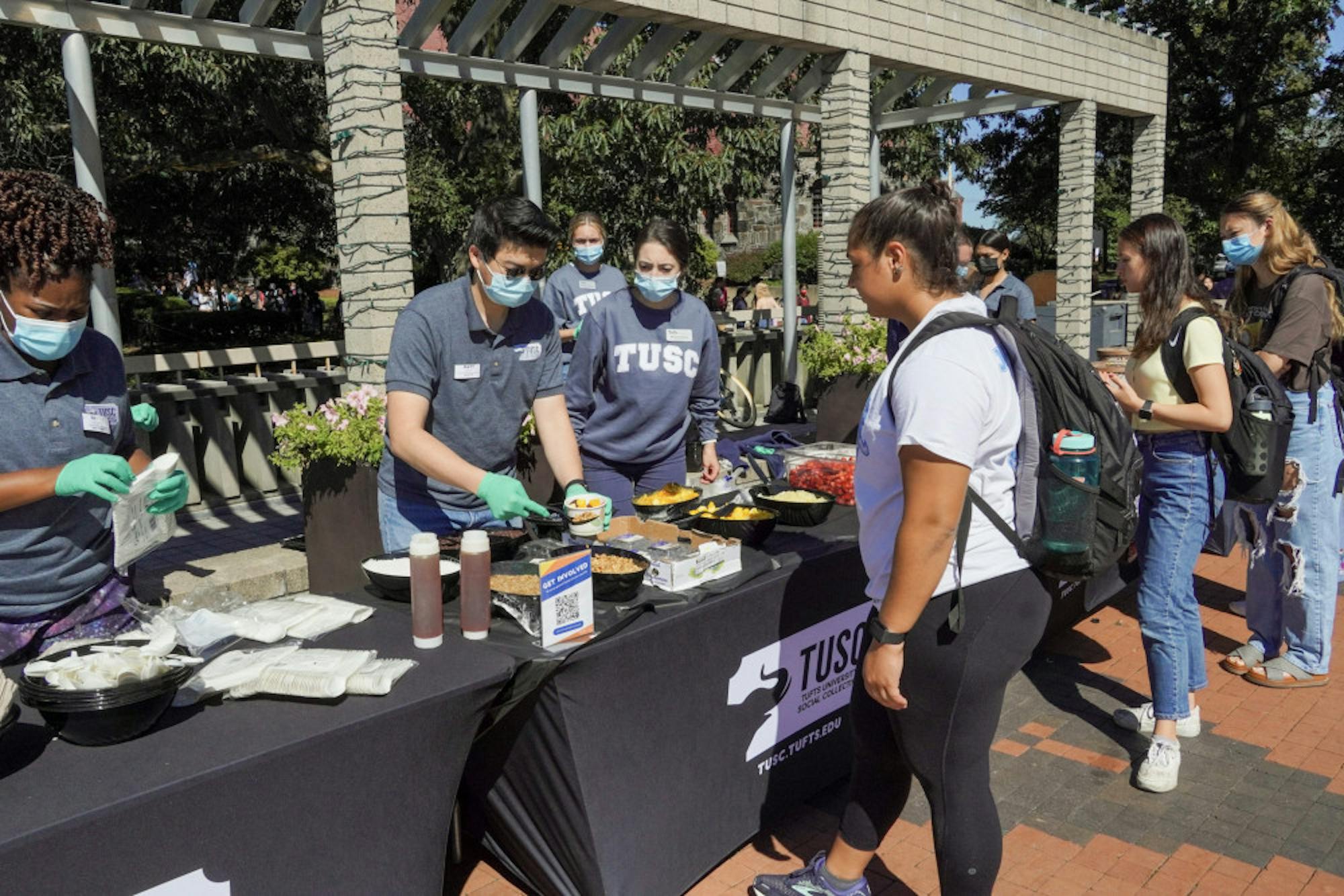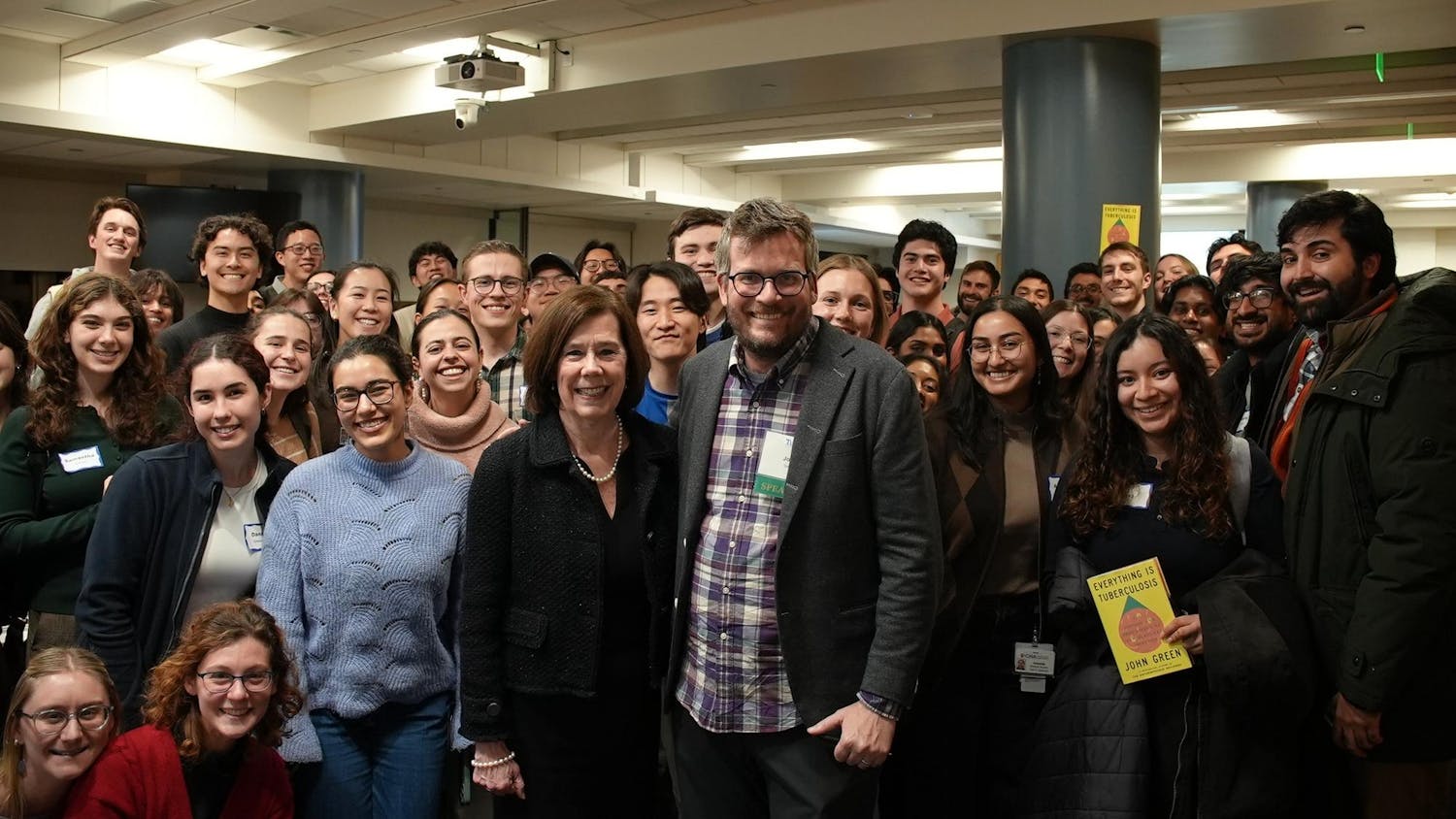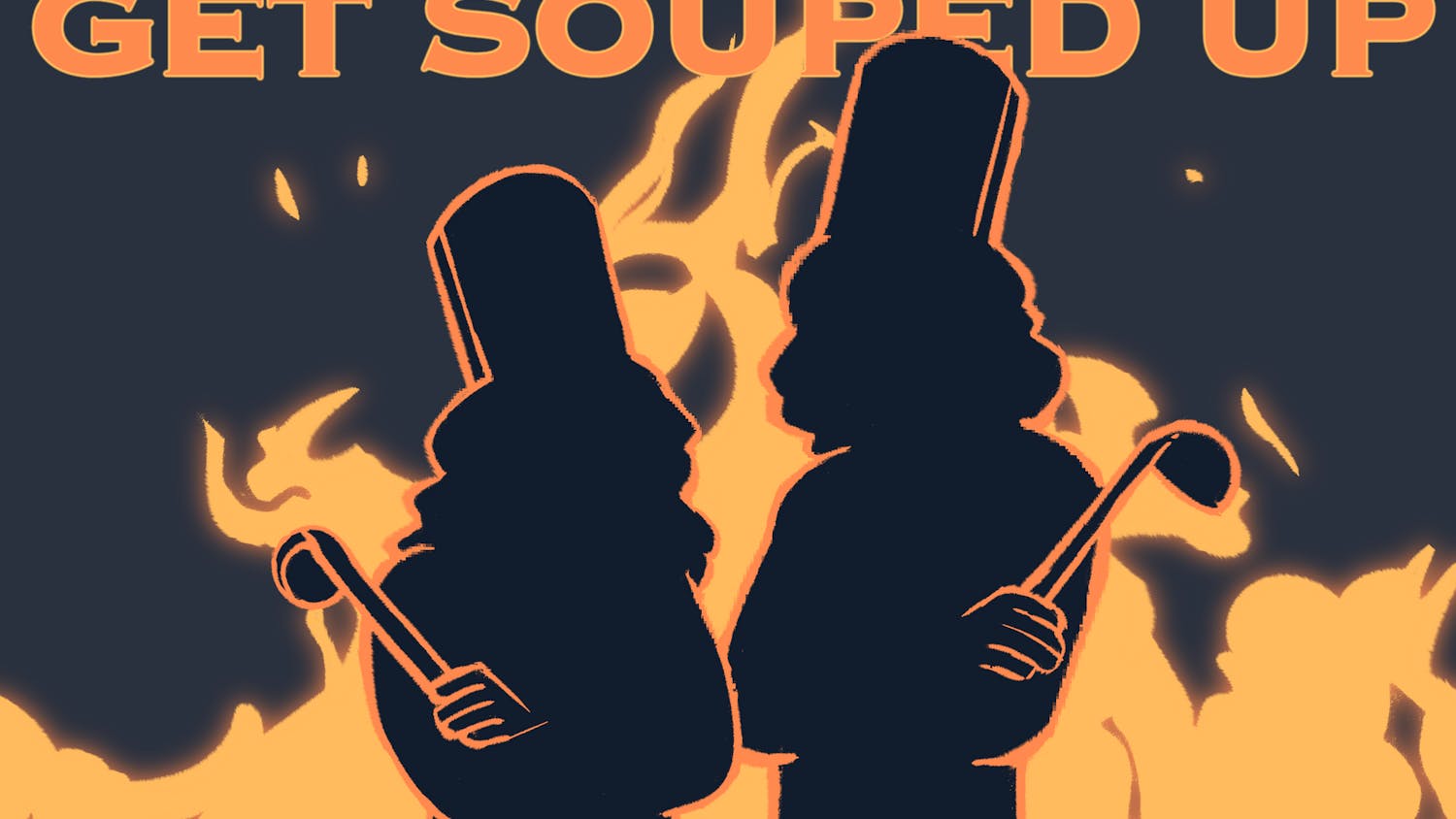On June 1, Tufts University Infection Control Health Director Michael Jordan sent out an email describing much-anticipated changes in health guidelines for the fall 2021 semester. Among them were the addition of a vaccination requirement and the removal of outdoor mask mandates and physical distancing protocols. The changes were indicative of the potential for a socially safe semester. Naturally, those working for the Office for Campus Life and Tufts University Social Collective became optimistic about a return to near-normal social life at the university.
“In general, all of us on TUSC are glad to see a greater variety of events available this semester,” junior Jordan Meek, an executive coordinator of the organization, wrote in an email to the Daily. “I’m really looking forward to bringing back our coffeehouse series, which is starting this month. I’m also excited for our senior events, like Lawn on D … That being said, the event I’m most looking forward to has got to be Goat Yoga!”
Excitement seems to be the key word to describe the mood at OCL and TUSC.
“Students have hit the ground running this year with programming,” John Wescott, associate director for campus life and TUSC’s primary advisor, wrote in an email to the Daily. “Overall, everyone has remained positive, innovative and committed to providing the best possible experiences while maintaining the safety of everyone involved.”
Despite this excitement and optimism, the return to in-person events has come with a learning curve.
Strange as it may be, many TUSC members only have experience coordinating virtual events.
“In a weird sense, it feels like, at least for me, my job is difficult because I was very confined to doing things in a virtual setting,” Surya Adeleye, Class of 2023 traditions coordinator at TUSC, said.
As a junior who joined the organization during her sophomore year,Adeleye is only now experiencing her first semester of planning larger in-person events. This relaxation of restrictions is crucial for the Traditions team, which puts on events like Spring Fling, an outdoor concert, and Tuftonia's Day, a massive carnival that commemorates both Tufts’ birthday and the end of the spring semester.
“My biggest hope is that [Tuftonia’s Day] will actually be able to happen,” Adeleye said. “I just really want to be able to put it together and also experience it for the first time.”
Three semesters into COVID-19, Tufts’ senior class is the only one to have had a full spring semester without pandemic-era restrictions. Adeleye expressed concern for the future of Tufts traditions and for the existence of TUSC itself. She worries that despite the continuation of grab-and-go and virtual events, students have forgotten how TUSC events have historically enriched social life at Tufts.
“Now I’m like, ‘Okay, how can we still keep people as engaged and still make people want to show up to TUSC events given that they’re allowed to go to their friends’ dorms and do things that they weren’t able to last year?’” she said.
Of course, the organizations’ definitions of safety are currently in flux in light of the recent surge of the Delta variant of COVID-19.
“That’s caused a lot of uncertainty about what we can and can’t do sometimes just days before an event, and thus disappointment as students have to rethink their plans,” Wescott said.
Indeed, the mood of a Sept. 14, email from Jordan and Camille Lizarríbar, dean of student affairs, was much more ominous than the one sent out at the beginning of the summer.
Jordan and Lizarribar wrote that due to the increasing number of positive COVID-19 cases, Tufts would increase testing frequency from once to twice per week. Stopping short of imposing restrictions reminiscent of last year, it included a list of recommendations.
"We ask you to be cautious and exercise good judgement," the email said.
Tufts students, therefore, find themselves in a bind: the energy on campus feels somewhere in between the 2020–21 school year and the time before March 2020. With conflicting signals abounding, TUSC aims to be a steady resource for fun events on campus.
“As new COVID guidelines come out, we are always modifying our approach,” Meek said.
He and his team at TUSC hope that there will continue to be events for all students and all circumstances. Even though things remain unpredictable, he added, there are already reasons to be grateful.
“Today, things are still quite in flux, but I’m just glad to be back in person on campus, and in the classroom,” he said.
Wescott also looked at the situation through an optimistic lens.
“It’s been a difficult, albeit rewarding experience to see the creativity of the student leaders and community as we overcome the challenges of programming during the pandemic,” he said. “I continue to be impressed, because while it may seem dull at times, it’s clear that our student organizations and TUSC have done significantly more than most schools have done during the pandemic."
Perhaps this success is the result of the mutually high regard in which the OCL and TUSC hold each other.
“Without John Wescott, I think TUSC would not exist,” Adeleye said. “We are so appreciative of him … he really helps us stay in line."
She cited his well-honed organizational skills as a perfect complement to the creativity of TUSC members.
Wescott echoed Adeleye’s sentiment, noting that keeping spirits up and keeping Tufts’ vibrant social life alive is hard work that requires a great deal of collaboration.
“It’s been an honor to be part of the team behind that,” Wescott said.






